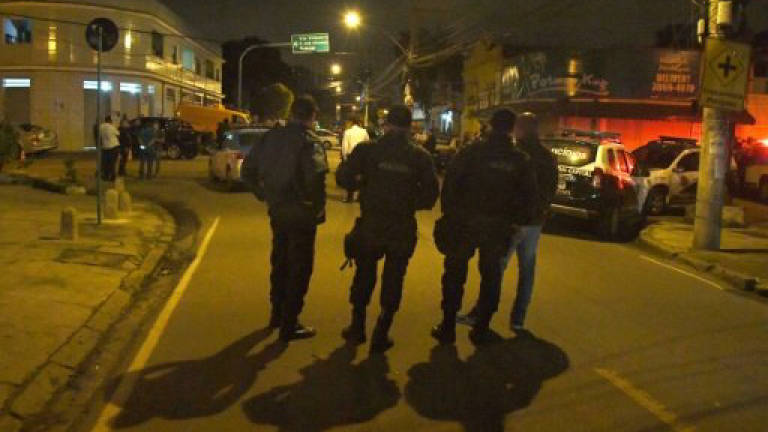Political killings overshadow Brazilian elections

RIO DE JANEIRO: The gunning down of a string of candidates ahead of nationwide municipal elections this Sunday is stoking fears that Brazil's toxic politics are headed into dangerous new territory.
The main headline from Sunday's polls is expected to be the hammering of the leftist Workers' Party, which many here blame for Brazil's punishing recession and sprawling corruption scandals.
Already reeling from the impeachment of former president Dilma Rousseff and her replacement by centre-right rival Michel Temer, the once-dominant Workers' Party looks set to lose a slew of local seats, including the mayor of Brazil's biggest city Sao Paulo.
But analysts say that a recent spate of killings around Brazil points to a darker political shift.
The latest victim was Jose Gomes da Rocha, running for mayor in Itumbiara in the state of Goias.
He was shot dead, along with a police officer, while campaigning on Wednesday, Globo news site reported. The state's deputy governor was also wounded in the attack in which the gunman was killed by security guards.
Supreme Court Chief Justice Gilmar Mendes called the incident "shocking."
Worries about violence have prompted deployment during the election of extra army and elite police forces to 307 municipalities across 12 states, according to the official Agencia Brasil news service.
The main hotspot is Rio de Janeiro, where 15 candidates or politicians have been murdered over the last 10 months, police say.
Just last Monday, Rio city council candidate Marcos Vieira de Souza, nicknamed Falcon, was shot while campaigning for the rightwing Progressive Party in Madureira, northern Rio.
His execution-style slaying remains unsolved but Brazilian analysts and media quickly linked it to shadowy armed groups known as militias.
De Souza, who headed one of Rio's biggest and richest carnival samba schools, was also a police officer and had been cleared of militia-related charges back in 2011.
Another candidate for municipal government – Jose Ricardo Guimaraes, who headed a private security firm – was shot dead the previous day at a rally in Itaborai, also in metropolitan Rio.
"We're seeing a series of murders in northern Rio suburbs that are a new phenomenon and everything points to a link with political conflicts," Michel Misse, an expert in security at Rio Federal University, said.
Militia 'taxes'?
While Brazil's bloody drugs gangs are well-known, the militias are more rarely discussed by officials or the media.
Comprised of former or rogue police officers, the militias operate like death squads against criminals and run protection rackets.
While their main activity has been battling gangs, the militias have also long tried to extend their influence into the political sphere. Those efforts now appear to be evolving into a new strategy.
O Globo newspaper reported on Wednesday that Rio militias were seizing Sunday's elections as a way to expand business while influencing the vote.
Gangs have informed candidates that they must pay an "election tax" in order to campaign, with fees running from 15,000 to 120,000 reais (RM19,055 to RM152,438).
According to Globo's investigation, militias even pressure candidates about the distribution of future posts should they win an election.
The militias have abandoned putting up their own electoral candidates, a direct approach that previously ended in scandal and prosecutions, Globo quoted the head homicide detective for the Baixada Fluminense region of Rio as saying.
"They have learned," the senior investigator, Giniton Lages, said. Instead, the militias "get close to the government and support it."
In an apparent illustration of this militia-style politicking, a group of 30 men burst into a newspaper distribution facility in Niteroi, outside Rio, on Tuesday to stop circulation of two dailies that were publishing a report on a candidate from the centre-right PMDB party.
"The situation is very complex. We know very little about these underground relationships," said Alba Zaluar, an anthropologist at Rio State University.
"There's no serious policy of investigating public security." — AFP